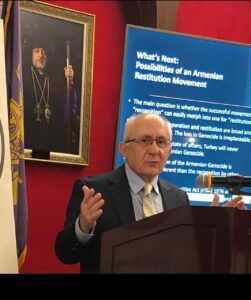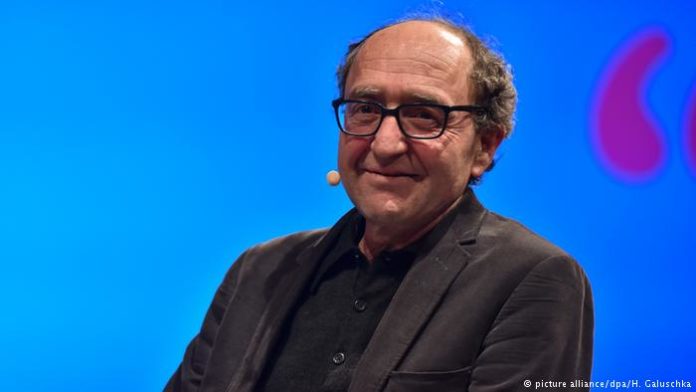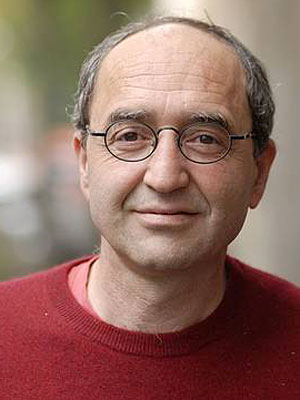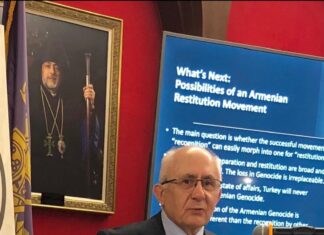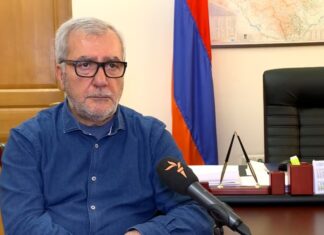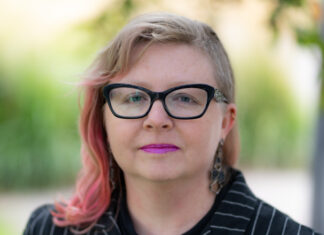BERLIN (Combined Sources) — Dogan Akhanli, a fighter for human rights in Turkey and worldwide, and an active proponent of the recognition of the Armenian Genocide died on October 31 from lung cancer. He was 64.
In 2018, he was awarded the European Tolerance Prize for Democracy and Human Rights. In 2019, he received the Goethe Medal of the Goethe-Institut for his courage to “assert himself with artistic and journalistic works against political, religious or social resistance”, as the laudatory speech states.
Akhanli was born in 1957 in southeastern Turkey, in the province of Artvin near the Georgian border. At the age of 12, he was sent to a school in Istanbul. He studied history and pedagogy, became politically active and later joined the banned Revolutionary Communist Party of Turkey (TDKP).
After the military coup in 1980, he went underground.
In May 1985, he, his wife and his 16-month-old son were arrested. For two years he was incarcerated in the military prison of Istanbul, while his wife and child were released after one year. In 1992, Akhanli fled Turkey and was granted political asylum in Germany, eventually settling in Cologne. Turkey revoked his citizenship because of his stance on military service.
Akhanli began writing in exile in Germany. “Here I found the peace to think about everything I experienced,” he recalls in a conversation at the time. “My wife and I were tortured, our child had to watch. We were injured people when we arrived here. But I did not want to accept these injustices that were done to me, to my family and to society as a whole. I used writing as my weapon. That was the only thing I could do. That was my way of raising my voice and resisting,” he said.
